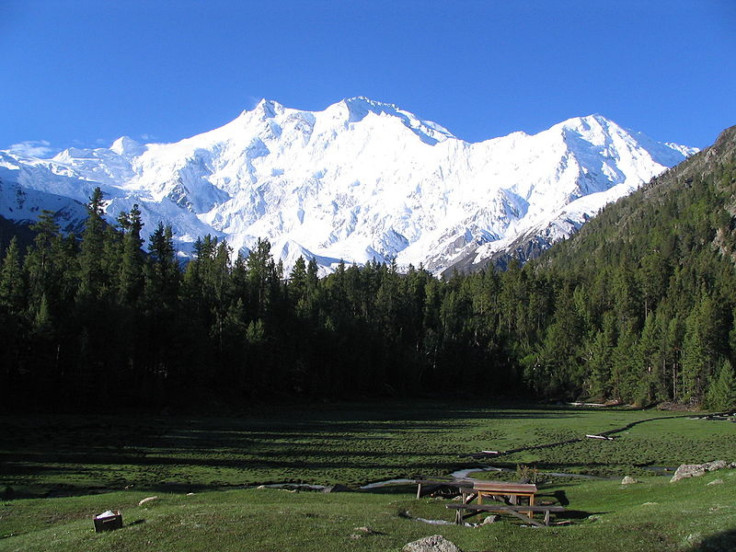Nanga Parbat Attack Could Hurt Pakistan’s Struggling Tourism Industry

Mountaineering has proved a bright spot in Pakistan’s otherwise minuscule tourism industry, but even that may lose some of its luster after a predawn attack at Nanga Parbat base camp in the nation’s typically calm Himalayan highlands on Sunday left 10 foreign tourists and one Pakistani guide dead.
The murdered foreigners were three Ukrainians, two Chinese, two Slovakians, one Lithuanian, one Nepalese and one Chinese-American, according to local officials. Another Chinese tourist was wounded but rescued. Pakistani Interior Minister Chaudhry Nisar Ali Khan said that when the attack occurred, the gunmen wore uniforms used by the Gilgit Scouts, a paramilitary police force that patrols the area.
Pakistan’s umbrella Taliban movement has since claimed responsibility for the killings, saying it acted to avenge U.S. drone strikes. Ehsanullah Ehsan, who identified himself as the group's representative, told Agence France-Presse by phone that the incident was carried out by Junood ul-Hifsa, which he said was a new wing set up by the Taliban “to attack foreigners and convey a message to the world against drone strikes.”
Meanwhile, Pakistan’s interior minister reassured visitors that their protection was a priority. “The purpose of this attack was to give a message to the world that Pakistan is unsafe for travel,” he said in a speech condemning the incident in the National Assembly Sunday. “The government will take all measures to ensure the safety of foreign tourists.”
The mass murder took place at a base camp some 4,000 meters (13,125 feet) above sea level on the western face of Nanga Parbat, the world’s ninth-tallest peak. At 8,126 meters (26,660 feet), the so-called killer mountain has claimed the lives of numerous mountaineers over the years, although Sunday’s attack adds a new element of risk. Police believe the gunmen are likely still in the area, given that the nearest road to the base camp is a two-day walk away.
Many tourists avoid Pakistan because of its perceived danger, but the mountainous region of Gilgit-Baltistan, which borders China and Kashmir, had been considered relatively safe. Located at the convergence of the Hindu Kush, Karakoram and Himalayan ranges, its soaring peaks -- including K2, the world’s second-highest mountain after Mount Everest -- have become one of the biggest attractions for intrepid travelers in a nation otherwise beset by insurgency and instability brought about by Islamic militant groups such as the Taliban and al Qaeda. Yet, even in Gilgit-Baltistan, attacks on Pakistan’s Shiite minority had become more frequent in recent years.
The brazen killing spree on Sunday was the first to involve foreign tourists since mountaineering took off in Pakistan. It puts the nation in a difficult position as it plans to host several other expeditions this year, including those of some 50-55 other climbers currently at Nanga Parbat, according to the Pakistan Tour Operators’ Association.
Cash-strapped Gilgit-Baltistan is heavily dependent on revenue raised from mountain expeditions, and many feared the attack could seriously hurt business for tour guides and small businesses linked to the industry. A representative of Adventure Tours Pakistan, the nation’s largest outfitter for mountaineering expeditions and trekking, said it was the “saddest day in the history of Gilgit-Baltistan.”
“We still can’t believe it has happened,” the representative said. “Many of those who have been to Daimir Base Camp of Nanga Parbat know the locals are very peaceful, and locals know their livelihood depends on the influx of tourists.”
Ghulam Nabi, a representative of the Pakistan Tour Operators’ Association, told the Christian Science Monitor that the attack could discourage thousands of international tourists from visiting a country that’s already dealing with an image problem abroad.
“Around 15 to 20 thousand tourists including mountaineers came to Pakistan each year during the summer season. Each one of them spends over five to six thousand dollars,” Nabi said. “The loss to Pakistan because of this attack will be in billions of rupees.”
© Copyright IBTimes 2025. All rights reserved.






















